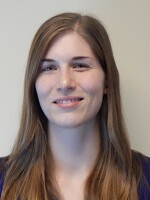There’s a lot that we can learn from our DNA. Some of it is information that’s important - like whether we’re predisposed to develop a disease. But that doesn't mean we can do something about it. There is, however, a lot of information that we can use, such as learning how our bodies respond to different kinds of foods.
Sherry Zhang is a researcher in genetics and obesity at the Medical College of Wisconsin and the founder and CEO of Genopalate, a Milwaukee-based startup that combines genome sequencing with nutrition. She believes that information could fundamentally change how we approach eating and understanding what is beneficial for us on an individual basis.
While Zhang was spending a decade researching genetics and obesity, she says she became increasingly concerned that obesity rates continued to rise, and affect not just adults but - increasingly - children.
"As I was observing this knowing that I have the technology that can help resolve this problem from the molecular level by reading your DNA, I thought 'I need to do something.'"
Genopalate analyzes a client’s genome and offers personalized recommendations about what a person should eat or drink, and what they should stay away from. This is done through answering a health questionnaire and through genetic data found through submitting a saliva sample.
Zhang concedes that not all answers to obesity are encoded in the genome. Indeed, she says it is the interaction of our genes with the environment. Just as no two people are the same - no two evolutionary histories are the same. Zhang says our ancestral roots have profoundly shaped our genome and how it interacts with the food and drink we consume.
"I believe better nutrition can be applied as a medicine for a lot of things and prevent illness. So this is really falling into the preventative care that the whole health system is trying to go towards." - Dr. Sherry Zhang
Genopalate analyzes 38 genetic markers to determine which indicate certain digestive and metabolic differences. Through this data, Genopalate can recommend caloric intake, what kinds of vitamins your body needs, and even what types of carbohydrates and fats to consume - or avoid.
"It really is a very complex process and it's personalized at every level," says Laura Danner, nutritional sciences student at UW-Milwaukee and a nutritional data analyst for Genopalate. "We're able to take a look at a holistic view of [a client's] health and take a snap shot of where they are in their lives and also integrate that with the information in their genetic history and give them a clear path forward."
Danner says that their role for clients is a "translator" of the body. She says that even if you are an intuitive eater, a lot of the food we eat prevents us from understanding our own body's signals. "A lot of that has to do with all the processed foods that we're eating that is actually blocking some of those chemical and hormonal signals," explains Danner. "So something that we're able to do...is to de-code that information for people."
Zhang says that creating an individual dietary framework for the best possible health outcomes is far more beneficial compared to diet fads and other extreme methods people put themselves through.
"It's almost killing me to think as a professional in genomics with knowledge of how different we are, but yet we are facing these 'one size fits all' solutions," she says.
Although the company stemmed from Zhang's ambition to address obesity, she notes that not all people who want to find out more from their biomarkers are necessarily struggling with their weight. Instead, many may just want to be more aware and proactive about their health.
"People have a struggle with certain specific issues in their wellness, but are not necessarily sick and need to go to the hospital. I believe better nutrition can be applied as a medicine for a lot of things and prevent illness. So this is really falling into the preventative care that the whole health system is trying to go towards," notes Zhang.







